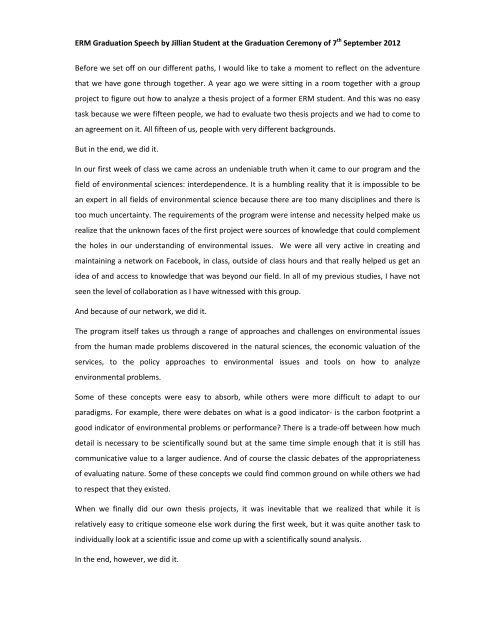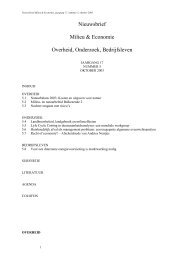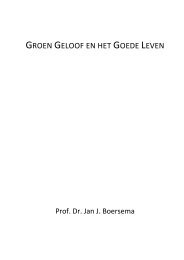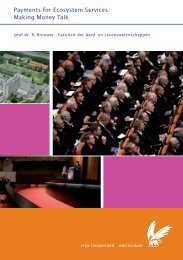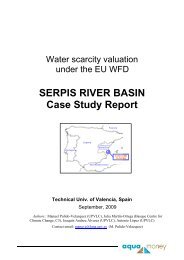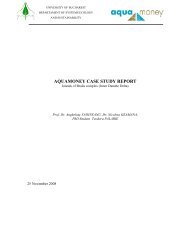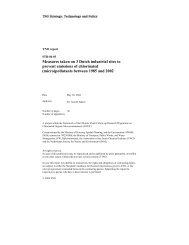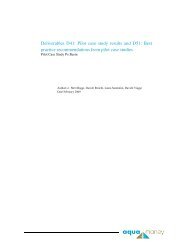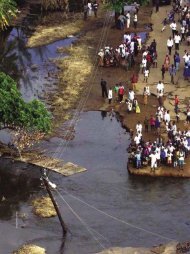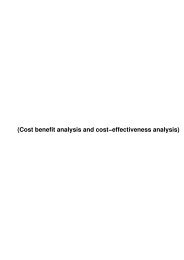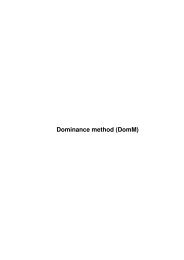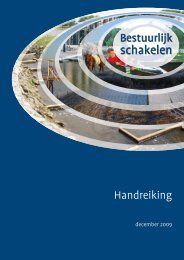ERM Graduation Speech by Jillian Student at the Graduation ...
ERM Graduation Speech by Jillian Student at the Graduation ...
ERM Graduation Speech by Jillian Student at the Graduation ...
You also want an ePaper? Increase the reach of your titles
YUMPU automatically turns print PDFs into web optimized ePapers that Google loves.
<strong>ERM</strong> <strong>Gradu<strong>at</strong>ion</strong> <strong>Speech</strong> <strong>by</strong> <strong>Jillian</strong> <strong>Student</strong> <strong>at</strong> <strong>the</strong> <strong>Gradu<strong>at</strong>ion</strong> Ceremony of 7 th September 2012<br />
Before we set off on our different p<strong>at</strong>hs, I would like to take a moment to reflect on <strong>the</strong> adventure<br />
th<strong>at</strong> we have gone through toge<strong>the</strong>r. A year ago we were sitting in a room toge<strong>the</strong>r with a group<br />
project to figure out how to analyze a <strong>the</strong>sis project of a former <strong>ERM</strong> student. And this was no easy<br />
task because we were fifteen people, we had to evalu<strong>at</strong>e two <strong>the</strong>sis projects and we had to come to<br />
an agreement on it. All fifteen of us, people with very different backgrounds.<br />
But in <strong>the</strong> end, we did it.<br />
In our first week of class we came across an undeniable truth when it came to our program and <strong>the</strong><br />
field of environmental sciences: interdependence. It is a humbling reality th<strong>at</strong> it is impossible to be<br />
an expert in all fields of environmental science because <strong>the</strong>re are too many disciplines and <strong>the</strong>re is<br />
too much uncertainty. The requirements of <strong>the</strong> program were intense and necessity helped make us<br />
realize th<strong>at</strong> <strong>the</strong> unknown faces of <strong>the</strong> first project were sources of knowledge th<strong>at</strong> could complement<br />
<strong>the</strong> holes in our understanding of environmental issues. We were all very active in cre<strong>at</strong>ing and<br />
maintaining a network on Facebook, in class, outside of class hours and th<strong>at</strong> really helped us get an<br />
idea of and access to knowledge th<strong>at</strong> was beyond our field. In all of my previous studies, I have not<br />
seen <strong>the</strong> level of collabor<strong>at</strong>ion as I have witnessed with this group.<br />
And because of our network, we did it.<br />
The program itself takes us through a range of approaches and challenges on environmental issues<br />
from <strong>the</strong> human made problems discovered in <strong>the</strong> n<strong>at</strong>ural sciences, <strong>the</strong> economic valu<strong>at</strong>ion of <strong>the</strong><br />
services, to <strong>the</strong> policy approaches to environmental issues and tools on how to analyze<br />
environmental problems.<br />
Some of <strong>the</strong>se concepts were easy to absorb, while o<strong>the</strong>rs were more difficult to adapt to our<br />
paradigms. For example, <strong>the</strong>re were deb<strong>at</strong>es on wh<strong>at</strong> is a good indic<strong>at</strong>or‐ is <strong>the</strong> carbon footprint a<br />
good indic<strong>at</strong>or of environmental problems or performance? There is a trade‐off between how much<br />
detail is necessary to be scientifically sound but <strong>at</strong> <strong>the</strong> same time simple enough th<strong>at</strong> it is still has<br />
communic<strong>at</strong>ive value to a larger audience. And of course <strong>the</strong> classic deb<strong>at</strong>es of <strong>the</strong> appropri<strong>at</strong>eness<br />
of evalu<strong>at</strong>ing n<strong>at</strong>ure. Some of <strong>the</strong>se concepts we could find common ground on while o<strong>the</strong>rs we had<br />
to respect th<strong>at</strong> <strong>the</strong>y existed.<br />
When we finally did our own <strong>the</strong>sis projects, it was inevitable th<strong>at</strong> we realized th<strong>at</strong> while it is<br />
rel<strong>at</strong>ively easy to critique someone else work during <strong>the</strong> first week, but it was quite ano<strong>the</strong>r task to<br />
individually look <strong>at</strong> a scientific issue and come up with a scientifically sound analysis.<br />
In <strong>the</strong> end, however, we did it.
Now we sit, once again in <strong>the</strong> same room with ano<strong>the</strong>r group project, reflection on our<br />
accomplishments during <strong>the</strong> past year. This program doesn't give us silver bullet solutions to<br />
environmental issues, but it does teach us how to ask questions and gives us <strong>the</strong> skills to work with<br />
people whose backgrounds both challenge and complement our own.<br />
In <strong>the</strong> coming months as we transition to <strong>the</strong> next phase, we face again uncertainty of how to adapt<br />
our knowledge to <strong>the</strong> constantly emerging and dynamic field of environmental sciences. And though<br />
again <strong>the</strong>re are no silver bullet answers to wh<strong>at</strong> our role should be, I do feel confident th<strong>at</strong> we all<br />
have <strong>the</strong> ability to ask <strong>the</strong> necessary questions and when necessary access our networks so th<strong>at</strong> in<br />
<strong>the</strong> end we get <strong>the</strong>re.<br />
We did it.


